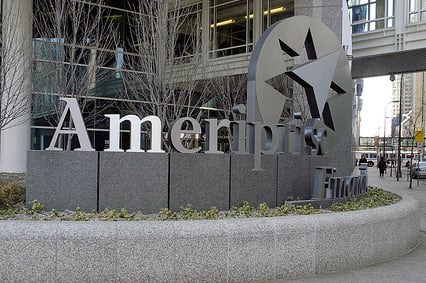Despite a proposed $150 million settlement with angry investors, Securities America Inc. is still not out of the woods.
Securities America struck the deal yesterday with clients who bought $400 million of high-risk offerings that have since gone bust. But apparently the agreement was struck with little margin for discord.
According to attorneys instrumental in structuring the settlement, if a handful of clients who collectively have $5 million in arbitration claims decide to opt out of the agreement, the deal would blow up. That, those attorneys say, would endanger the chances of survival for Security America.
“We're too close for comfort,” said Joe Pfeiffer, one of the plaintiff's attorneys who ran a committee to create the settlement. “We can't have a lot of [clients] opting out or filing new claims. It blows the settlement, and if the settlement blows up, I think it blows up Securities America.”
Any agreement must also be approved by a federal judge in Dallas.
The proposed settlement is said to be around 37 cents on the dollar. That's more than three times the amount Securities America and its parent company, Ameriprise Financial Inc., put on the table for investors in March.
From 2003 to 2009, about 400 of Securities America's 1,800 advisers sold private placements issued by Medical Capital Holdings Inc. and Provident Royalties LLC. Dozens of independent broker-dealers sold those failed investment instruments, which the Securities and Exchange Commission has since claimed were fraudulent.
The 1,800 Securities America brokers have been whipsawed by news about the attempts by the firm to settle the matter over the past two months. Many have already contacted competing broker-dealers, fearing the firm might be shut down. And in fact, a number of independent broker-dealers that sold Medical Capital notes and Provident shares have closed down, unable to bear the burden of lawyers' fees and fighting investors who wanted their money back.
In a note yesterday to reps, Janine Wertheim, an Securities America spokeswoman, said the firm was having success recruiting brokers, despite the legal turmoil.
That tumult stems from two tracks of litigation against the B-D. One involves investors who are suing Securities America and Ameriprise as a class. Others have filed arbitration complaints against Securities America – and sometimes Ameriprise.
Lawyers said that for the settlement to fail, investors with more than $5 million of arbitration claims would have to walk away from the deal. In addition, an influx of new arbitration claims of more than $5 million would break the agreement. The settlement would also be scuttled if class action claimants with $10 million in claims leave the table.
Ms. Wertheim did not return a call today seeking comment. But Mr. Pfeiffer stated, “This is the best deal available out there without putting the whole thing into the dumps.”
Another plaintiff's attorney who worked to create the settlement, Hugh Berkson, said that “the vast majority” of investors suing through Financial Industry Regulatory Authority Inc. arbitration have decided to take the settlement offer.
Securities America informed the brokers of the expected settlement in an e-mail yesterday.
“We are pleased to tell you that we have continued to make very good progress toward finalizing a settlement of the Medical Capital and Provident Shale matters,” Ms. Wertheim wrote. “We expect to file a settlement agreement for the class actions with the court within the week, and we are receiving good support of settlement terms from clients who have filed arbitrations.”
Nevertheless, one attorney said his client, who purchased $550,000 of failed private placements notes from Securities America, would not agree to the settlement. “We reject the settlement and opt out of the class action lawsuit,” said attorney Mark Schwartz.
The reason for the rejection? Ameriprise's status as the owner and controller of Securities America. The publicly traded company, which is taking a $40 million reserve for legal action stemming from Securities America, earned more than $1 billion in 2010.
“Ameriprise's legal status is something other than the tooth fairy here,” he said. “Time and again, Ameriprise has put money into Securities America. Ameriprise claims it's separate, but it's clearly not.”







